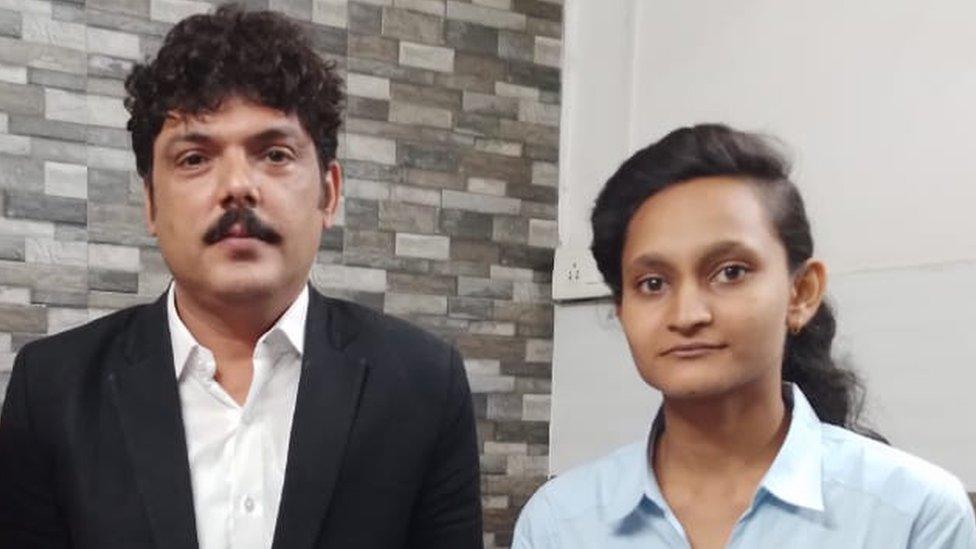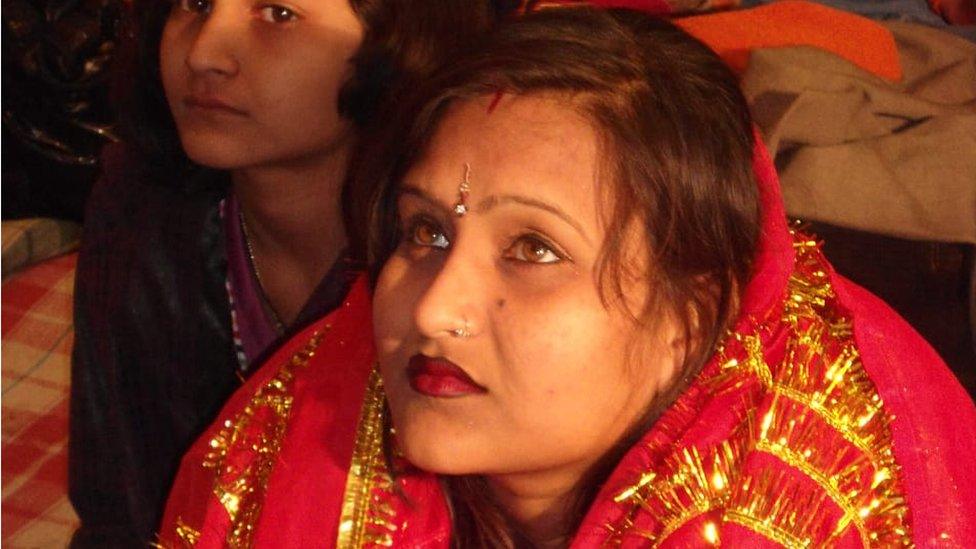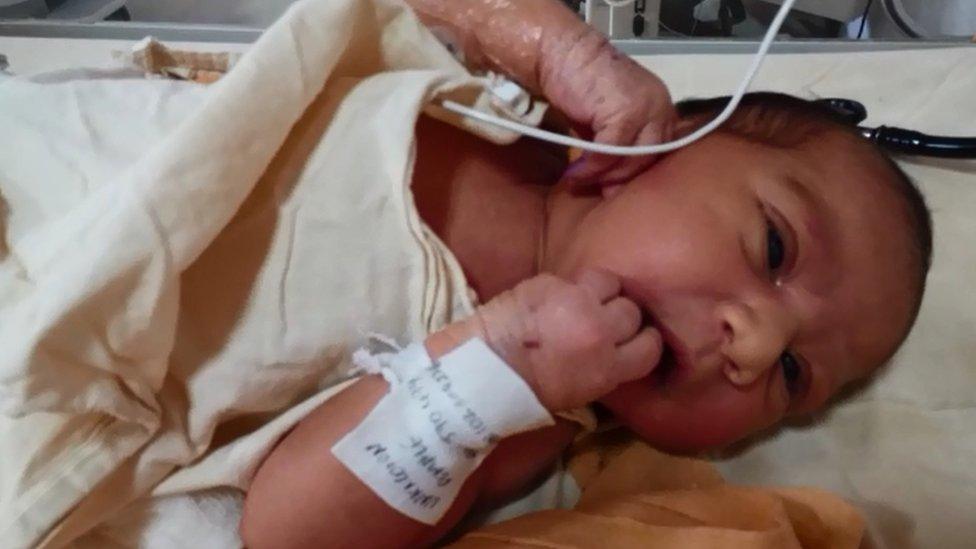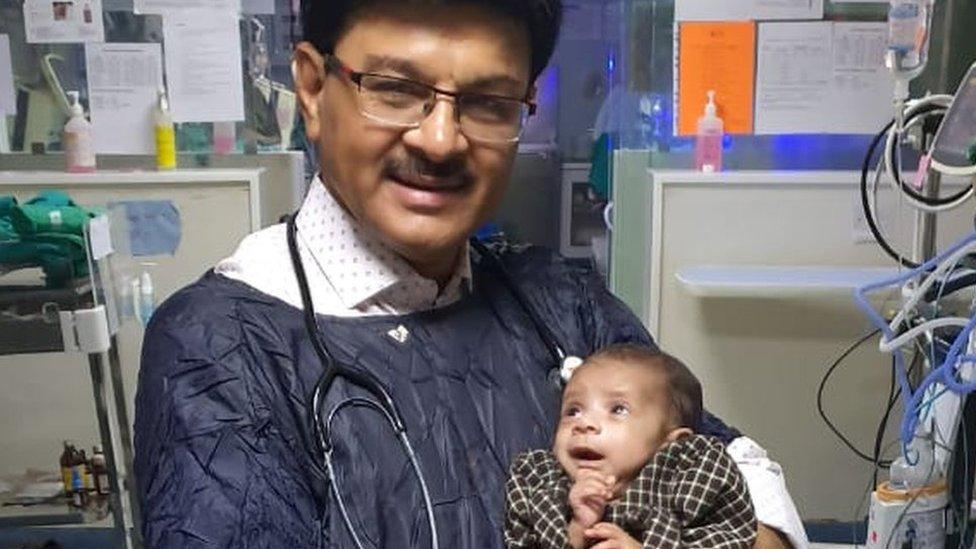Bulandshahr: India girls who wrote letter with blood get justice
- Published

Lawyer Sanjay Sharma said Latika (right) and her sister pursued the case against their own father and finally got justice
Six years after an Indian teen wrote a letter with her own blood seeking justice for her mother who was burnt alive, the murderer has been punished.
Based on the eyewitness accounts of Latika Bansal - now 21 - and her younger sister, a court sent their father Manoj Bansal to jail for life.
The girls told the court that their father used to beat up their mother for "not giving birth to a son".
Bansal denied the accusations and said his wife had died by suicide.
In the order pronounced on Wednesday, the court in Bulandshahr city in the northern state of Uttar Pradesh agreed that Bansal was guilty of killing his wife for "not giving birth to a son".
India's preference for sons is rooted in a widely-held cultural belief that a male child would carry forward the family legacy and look after the parents in their old age, while daughters would cost them dowries and leave them for their matrimonial homes.
This belief, campaigners say, is behind the neglect and poor treatment of the girl child and India's dramatically skewed sex ratio - caused by elimination of tens of millions of female foetuses through sex-selective abortions, known as female foeticide.
During the trial, the Bansal sisters recounted in court how they had grown up seeing their father and his family often taunt and assault their mother Anu Bansal for giving birth only to daughters.
The court also heard that Anu had been forced to undergo six abortions after illegal sex determination tests showed that she was pregnant with a girl child.
The sister said their life changed on the morning of 14 June 2016 when their father - allegedly supported by his family members who deny the charges against them - doused their mother with kerosene and set her on fire.
"At 6:30am, we were woken up by the cries of our mother. We couldn't help her because the door of our room was locked from the outside. We watched her burn," the girls said in their testimony in the trial court.
Latika said after their calls to the local police and ambulance services were ignored, they called their maternal uncle and grandmother who quickly arrived and took their mother to the hospital.
According to doctors who treated her, Anu Bansal had received 80% burns. She died a few days later in hospital.

Anu Bansal was murdered by her husband for not giving birth to a son
Their case came into the limelight only after the girls - then 15 and 11 - wrote a letter with their own blood to then chief minister Akhilesh Yadav, accusing the local police official of changing the murder case to that of suicide.
The local police investigator was then suspended for not doing proper investigation and Mr Yadav ordered senior police and administration officials to supervise the case.
"It's taken us six years, one month and 13 days to finally get justice," Sanjay Sharma, the lawyer who represented the sisters in court, told the BBC.
"This is a rare instance of daughters pursuing a case against their own father and finally getting justice," he said, adding that over the past six years, the girls appeared in court "more than 100 times" and "never missed a single date".
Mr Sharma added that he did not charge any money from the family as they were financially weak and also because he wanted to bring attention to a social issue.
"This is not just a murder of a woman. This is a crime against society," he told me. "It's not in a woman's hands to decide a child's gender so why should she be tortured and punished? This is evil."
Related topics
- Published24 October 2016

- Published5 December 2019
